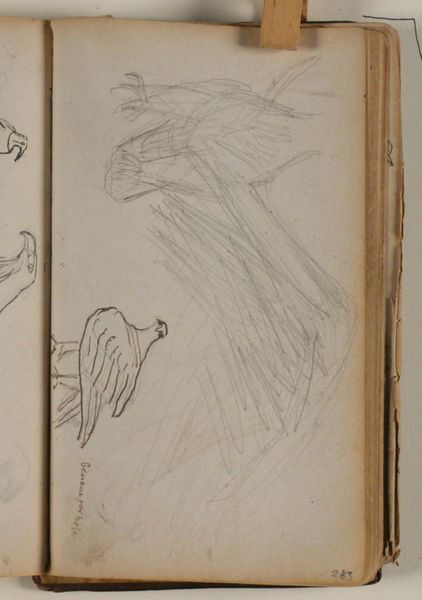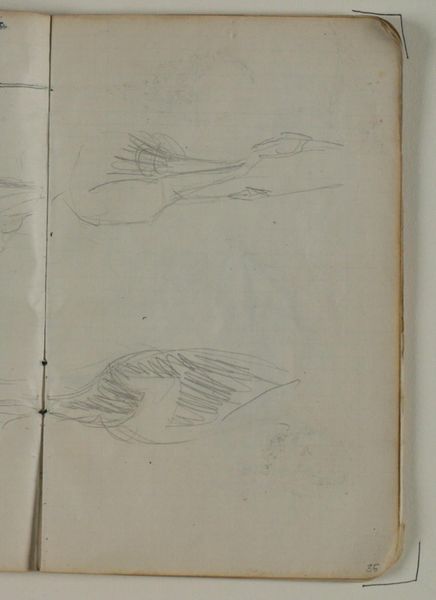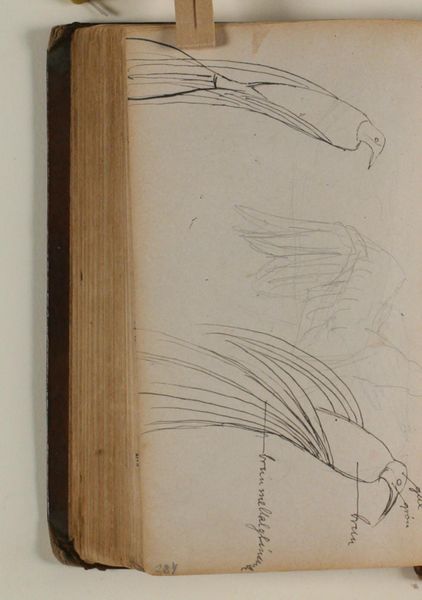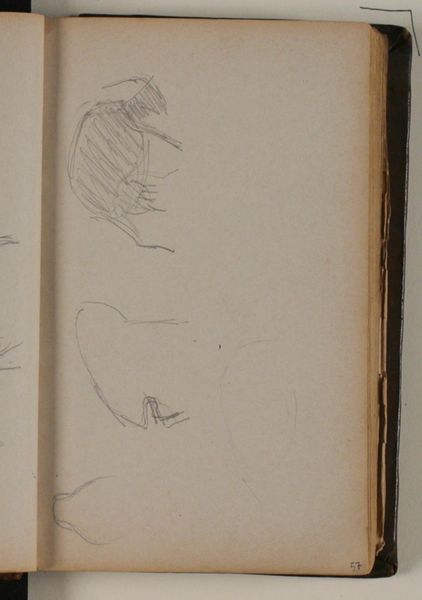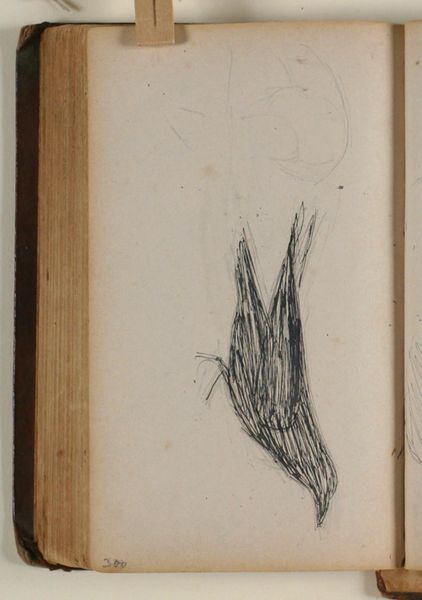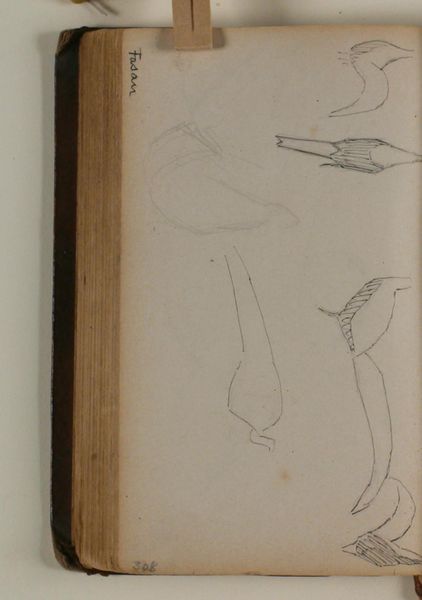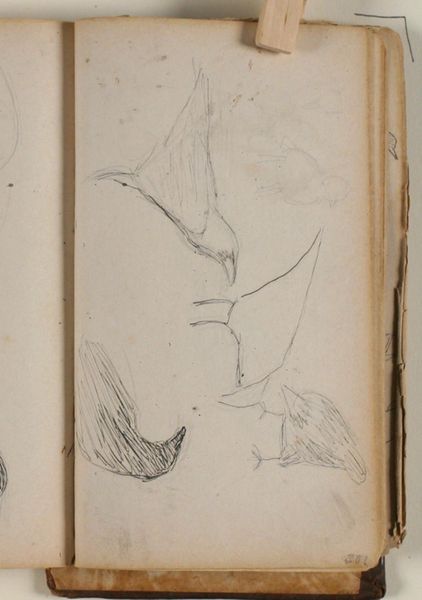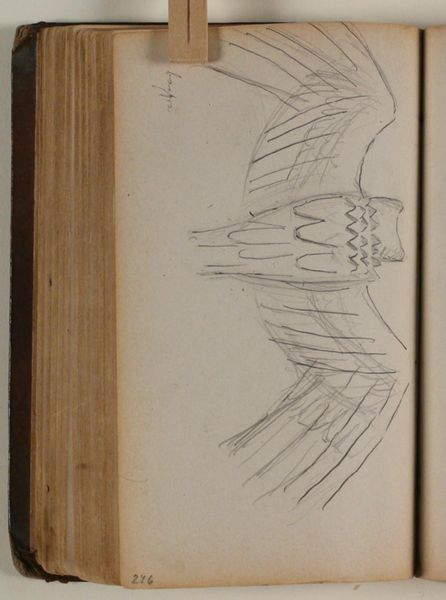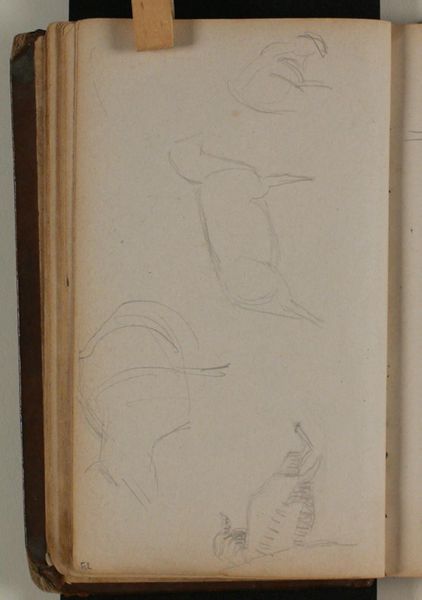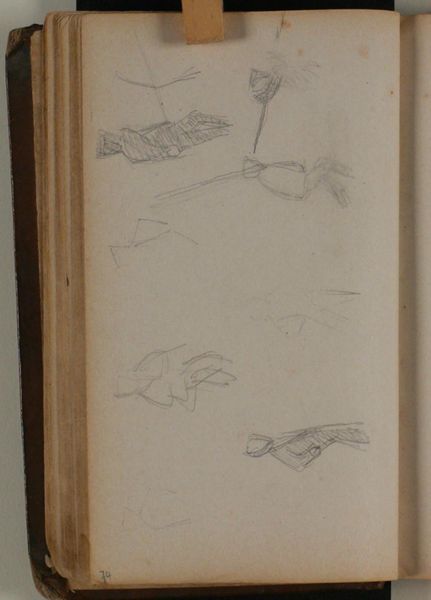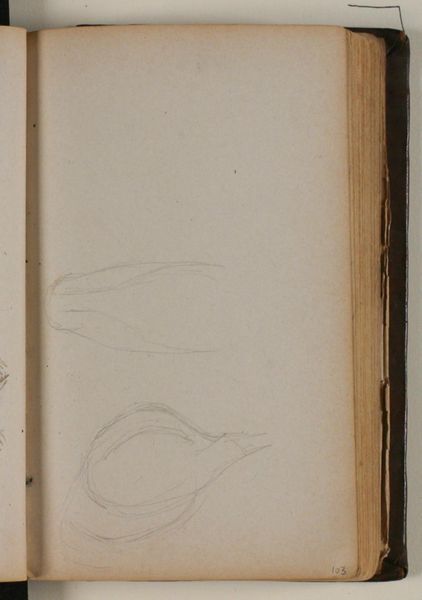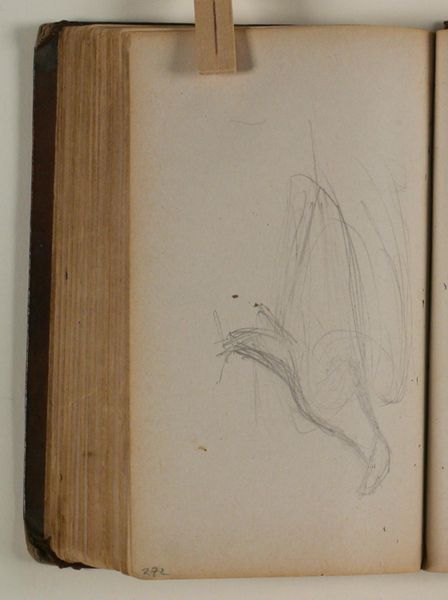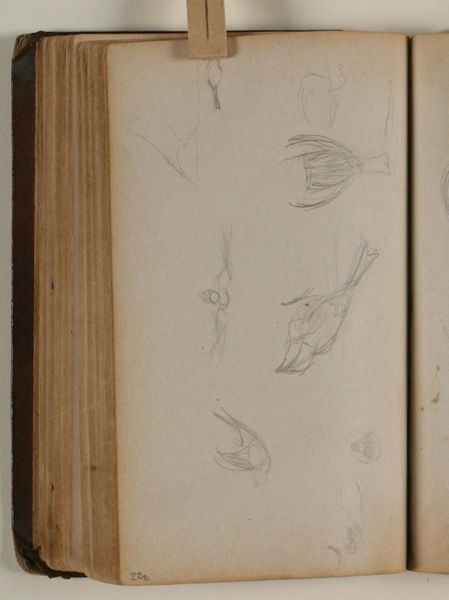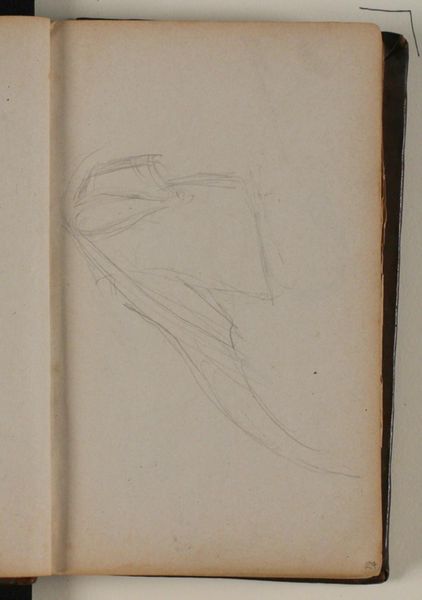
To studier af gribbe, set forfra og fra siden 1864 - 1941
0:00
0:00
drawing, pencil
#
drawing
#
aged paper
#
toned paper
#
light pencil work
#
pencil sketch
#
sketch book
#
landscape
#
personal sketchbook
#
sketchwork
#
journal
#
pencil
#
sketchbook drawing
#
sketchbook art
Editor: This is "To studier af gribbe, set forfra og fra siden," or "Two Studies of Vultures, Seen from the Front and from the Side," by Niels Larsen Stevns, dating from 1864 to 1941. It's a pencil drawing. The light pencil work against the aged paper makes the vultures seem almost ghostly. What do you see in this piece? Curator: From a formalist perspective, the piece invites an analysis of line and form. Note how Stevns uses varying line weights to suggest depth and texture in the vultures’ plumage. Observe also the stark contrast between the detailed rendering of the heads and the more gestural depiction of the bodies. Editor: So, you are saying it's all about how he has composed this using form and line? What about his choice of subject? Curator: Precisely. The vultures themselves, while representational, become vehicles for exploring artistic techniques. The composition itself creates tension: The upper vulture, viewed head-on, feels imposing, almost confrontational. This is juxtaposed with the profile view below, which seems more observational and passive. This is echoed with varied cross-hatching creating tonality. How does the texture of the aged paper contribute to the overall aesthetic? Editor: I guess it adds another layer of visual complexity, making the whole composition feel richer and even rawer, doesn't it? Curator: Indeed, transforming a simple sketch into a rich aesthetic experience. Editor: This close visual reading has really changed how I view the piece. I'd focused so much on what it *is* instead of what the artist did. Curator: Indeed, understanding the 'how' is fundamental to the artistic experience.
Comments
No comments
Be the first to comment and join the conversation on the ultimate creative platform.
